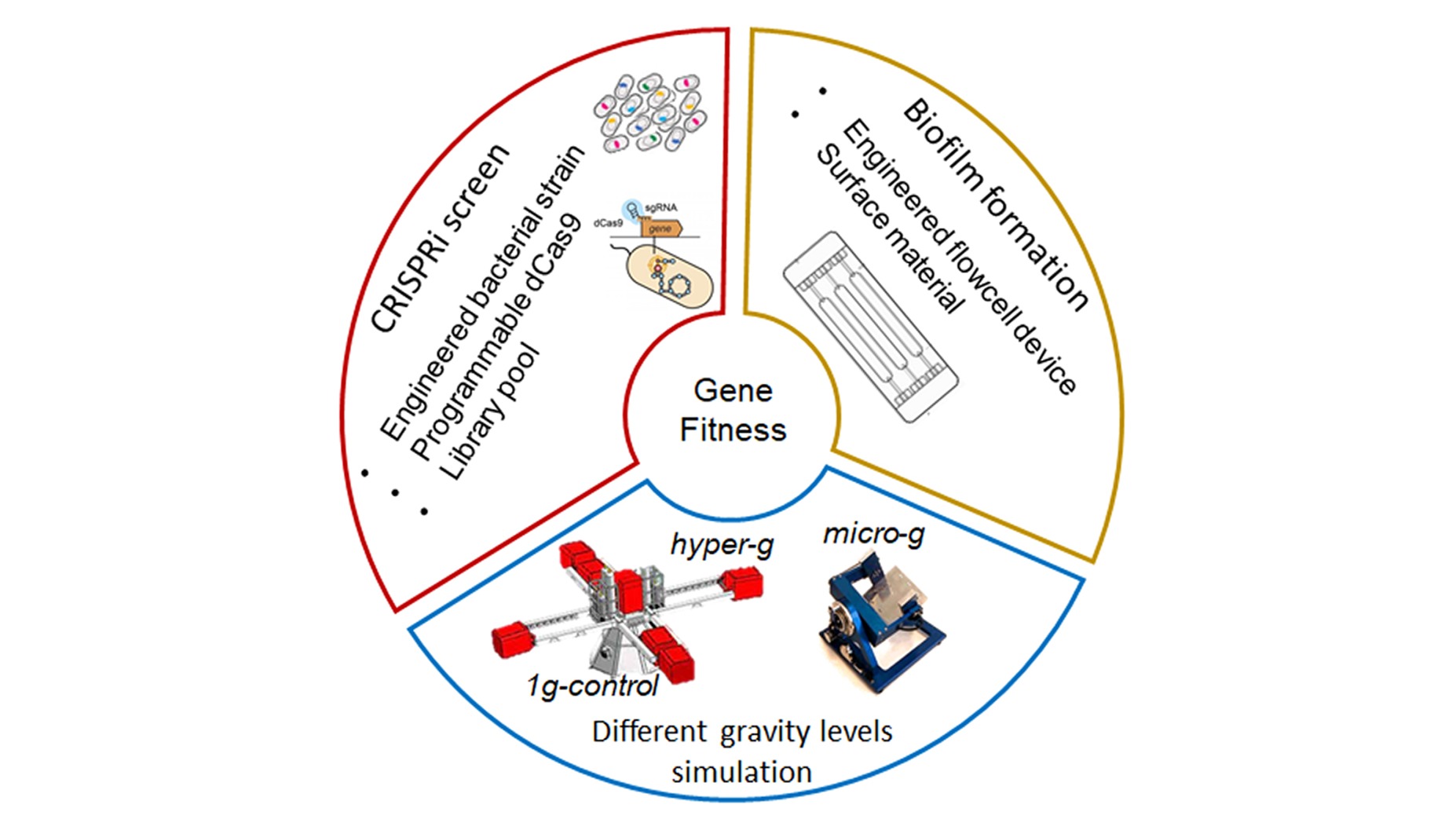Bacterial biofilms develop on nearly all surfaces posing a threat to the integrity of spacecraft and space station equipment, including the water recovery system. Extensive effort toward understanding microbial responses to space environment highlighted the role of microgravity in promoting biofilm formation in many bacteria. Little is known about the effect of hyper-gravity on biofilm formation and structure. How microbial biofilm form in space and how can we control them are important issues that require gaining basic knowledge about key genetic components responsible for adaptation to spaceflight conditions. We aim at identifying genes involved in the transition to a biofilm lifestyle under a range of simulated gravities relevant to ISS, Moon, Mars, Earth and hyper gravity condition. CRISPR-interference is a state-of-the-art genetic technology for the high-throughput interrogation of genome-wide gene functions. We propose to perform (CRISPRi)-screens to identify genes whose repression affects biofilm fitness under different gravity levels. In the first year, we will set up the CRISPRi screens using a fluidic device developed at the Aristotele University of Thessaloniki. In the second year, we will validate key genes and construct biofilm sensors using genetic circuits and advanced microscopy. The third year, we will apply these tools to search for drugs and other countermeasures that mitigate biofilm formation under the simulated gravity levels. We will focus on two species, Bacillus and Pseudomonas. The implementation of this cutting-edge approach on biofilms under altered gravity will require to access to ESA-ground based facilities at the Instrumentation and Life Support laboratory (TEC-MMG) of ESTEC through CORA calls. This project, developed under the umbrella of the ESA’s Topical Team “Biofilm”, will benefit from a collaboration with the University of Naples through a parallel OSIP project on the role of gravity and surface stress on Pseudomonas biofilms.

